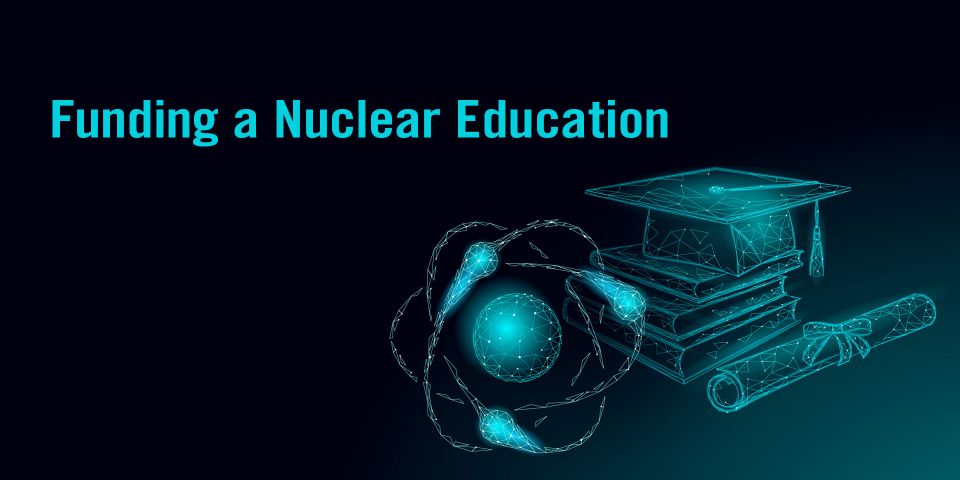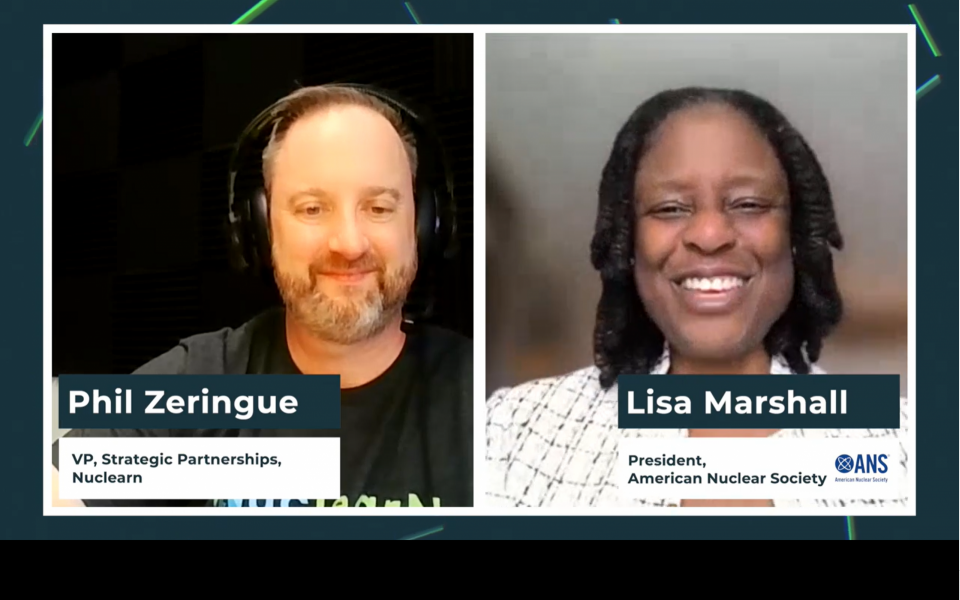News you can’t use
In new media and old, time must be devoted to finding and conveying accurate information, no matter how short the news cycle.
(This editorial will be published on the "Nuclear Notes" page in the July 2011 Nuclear News magazine. It refers to news coverage on Severe Accident Management Guidelines and Nebraska reactors in the Power section of the July issue.)
To the extent possible, Nuclear News tries to avoid writing about other publications and what is published elsewhere. We believe that our readers have a limited amount of time, and that they look to NN to provide germane information on current events in the nuclear field, briefly and unambiguously. This is our opinion page, however, and recent coverage of nuclear topics in the wider world of journalism has spurred us to attempt to make a few things clear:
1) Severe Accident Management Guidelines (SAMG) are not Nuclear Regulatory Commission requirements, and the NRC's opinion of how they are carried out is not a judgment on a power reactor's safety. The NRC has examined each licensee's use of SAMGs as part of the agency's post-Fukushima Daiichi study of how U.S. reactors might respond in a similar situation, with a widespread loss of infrastructure support resulting from a single initiating event. The NRC asked 11 questions about SAMGs, with "yes" being the preferred answer. To only one question-whether the SAMGs are covered by the plant's procedure control and document management system-fewer than half of the respondents gave a yes answer. This has been spectacularly misinterpreted in some news reports to mean that more than half of the reactors in the United States are unsafe.
SAMGs were developed by the industry to address an issue that the NRC would otherwise have addressed by adding new regulatory requirements. In this case, the NRC held back and gave licensees a chance. Whether SAMGs will remain outside NRC regulation once all of the post-Fukushima Daiichi lessons are learned remains to be seen, but at this stage, the NRC's position on how SAMGs are handled is advisory, and NRC staffers continue to assert that all plants are operated safely.
2) The NRC has not allowed power reactors to become unsafe by systematically weakening regulation. An Associated Press series that began publication in June strongly suggests that this has happened, but in fact, every reinterpretation of regulations as the industry has matured has been based on lessons learned from Three Mile Island-2 and the growing body of operating experience. Early power reactor regulation was extremely conservative and deterministic, and this may have been a valid approach to take during the introduction of nuclear power. Like all other rulemaking, the subsequent changes have gone through the public notice and comment process. The NRC has been receptive to industry initiatives in recent years, but safety cases must be made in detail and supported rigorously. The NRC is not a pushover.
The AP report is actually the product of traditional media, with a team of people conducting interviews and sifting through records, and then taking time to produce the written text. Sadly, this did not alter what seems to have been the guiding principle from the start: that the reason for the easing of regulations was that licensees could not comply with the original requirements. Also, in the published text, there was a glaring mistake. A passage on the containments of U.S. reactors was followed with a statement on the hydrogen explosions at Fukushima Daiichi, incorrectly identifying the external structures of the Japanese boiling water reactors as containments.
3) There are no nuclear disasters taking place in Nebraska. At this writing, the Missouri River has reached its crest level in the vicinity of the state's two power reactors, Cooper and Fort Calhoun. The water level will remain high for several weeks. The crest is a few feet above grade level at Fort Calhoun, which has been in a refueling outage and was expected to remain in cold shutdown until the waters recede. Berms are keeping the waters away from significant plant facilities. Cooper has remained in power operation. The crest is a few feet below the plant's grade level, but it has been high enough to overtop a sludge pond and cause an uncontrolled release (of nonradioactive material) into the river.
This is not the first time recently that spring runoff has been high enough to cause Omaha Public Power District to take special measures to keep the water away from Fort Calhoun. OPPD took some steps after NRC inspections in 2009, and it might be reasonable for OPPD to build larger, stronger, more permanent levees to prevent this year's extra effort from becoming an annual event. A debate on this point, however, is a far cry from the wild, bizarre statements (mainly, it seems, on the Internet) alleging severe damage to the reactors.
Here at our sober, sedate, monthly NN publication, we can be accused of lacking sympathy for the dwindling ranks of working journalists, many of whom must now follow news cycles that seem to be measurable in milliseconds if they want to hang on to their jobs. It may also be unseemly for us to cluck our tongues at the feverish online effort to get the next viral video or must-click headline link, when most of our information distribution still comes at the expense of trees bound for pulp mills. And, you know what? We don't care. No matter how new your medium is, if you're not getting the facts straight, you're wasting the reader's time.
_________________________________
E. Michael Blake is a senior editor of the American Nuclear Society's Nuclear News magazine.









